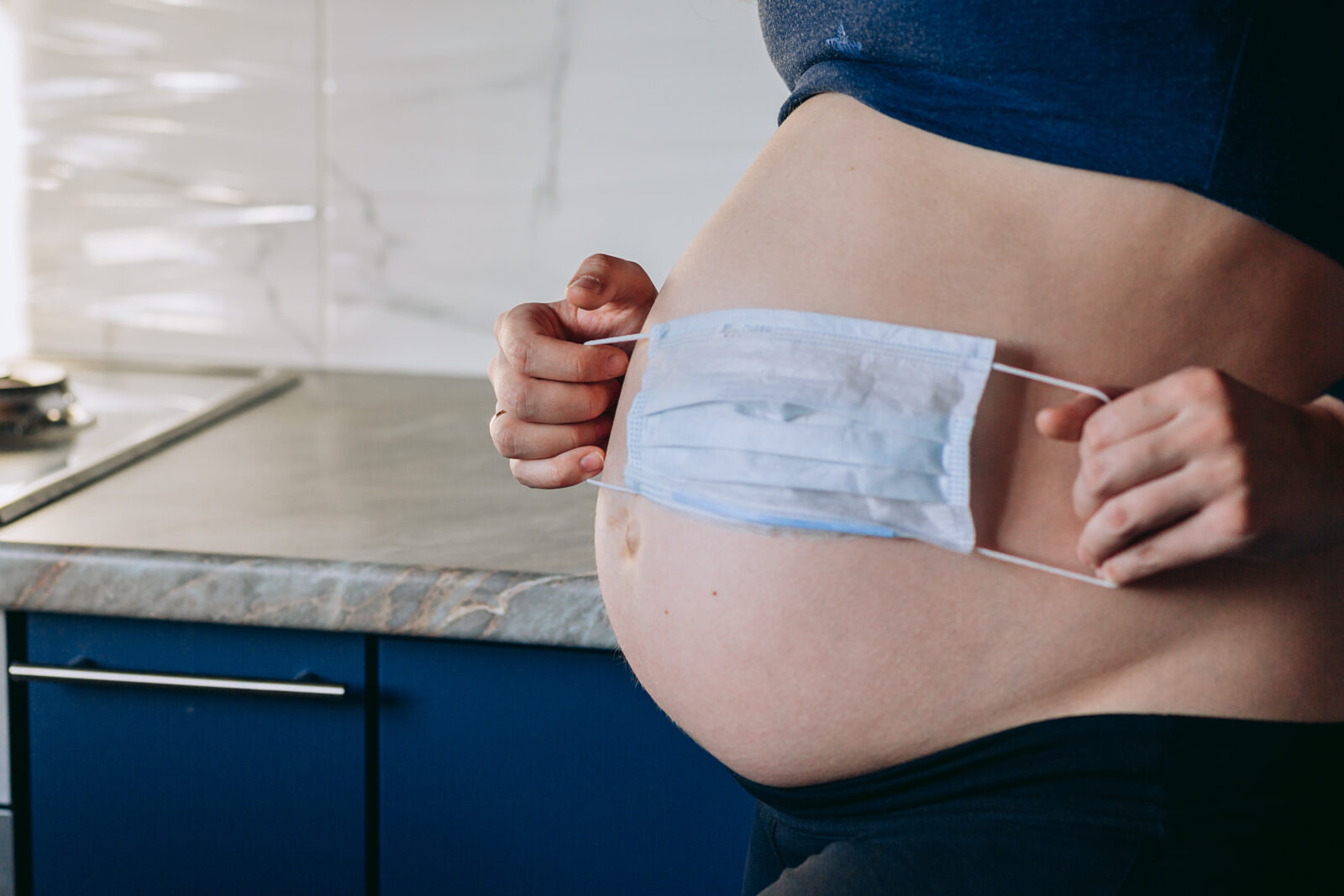Pregnancy is often a time fraught with medical concerns. Pregnancy during a pandemic adds much to that anxiety. While it is still too early for medical experts to know exactly how COVID-19 may affect you and your baby, below is a roundup of helpful information for moms-to-be as they navigate the unchartered territory of being pregnant in the time of COVID-19.
How Can I Protect Myself from COVID-19 While Pregnant?
Pregnant women (and everyone else) should follow the Centers for Disease Control and Prevention (CDC) guidelines for preventing the spread of COVID-19. The CDC recommends:
- Wash your hands often with soap and water for at least 20 seconds
- Clean and disinfect frequently touched objects and surfaces
- Cover your cough or sneeze with a tissue, then throw the tissue in the trash and wash your hands
- Wear a cloth face covering over your nose and mouth
- Do not touch your eyes, nose or mouth
- Stay at least 6 feet (about 2 arms’ length) away from people who don’t live in your home and avoid close contact with people inside your home who are sick
- If you are sick, stay home except to get medical care
Will I Be at Increased Risk for a Severe Case of COVID-19 If I Catch COVID-19 While Pregnant?
Data released by the CDC suggest that pregnant women with COVID-19 are more likely to be hospitalized and are at increased risk for intensive care unit (ICU) admission and receipt of mechanical ventilation than nonpregnant women. Risk of death is similar for both groups. The CDC has indicated that much remains unknown.
Should I Skip My Prenatal Care Appointments Due to the Risk of COVID-19?
The CDC does not recommend skipping prenatal care appointments during the pandemic. The American College of Obstetricians and Gynecologists (ACOG) says that fewer or more spaced out in-person doctor visits and the use of telemedicine may be an option for some pregnant women.
If I Have COVID-19 While Pregnant, Can I Pass It to My Baby?
Although currently the ACOG states that it is not likely that COVID-19 is passed to a fetus during pregnancy, there is emerging research that in utero transmission is indeed possible. However, it is unclear what this means in terms of consequences for the pregnancy or the newborn.
I Don’t Have Symptoms of COVID-19. Will I Be Tested for COVID-19 when I am Admitted to the Hospital to Give Birth?
The CDC states that testing of asymptomatic pregnant women is at the discretion of the healthcare provider and the facility.
Should My Newborn Baby Be Tested for COVID-19 If I Have the Virus?
The CDC recommends that babies born to women with confirmed or suspected cases of COVID-19 be tested, regardless of whether they show signs of infection.
I Don’t Have COVID-19. Should My Baby Be Discharged from the Hospital Early to Avoid Infection?
The American Academy of Pediatrics (AAP) does not recommend early hospital discharge for babies born to mothers who don’t have COVID-19. According to the AAP, early discharge may place additional burdens on families to access, and on outpatient pediatric offices to provide, recommended newborn care, screenings and outpatient follow-up.
I Have COVID-19. Can I Room-In with My Baby?
According to the AAP, the extent of risk to an infant in this situation is not presently known. The AAP states that separating the infant and mother, at least temporarily, is the safest course of action for minimizing the likelihood that the infant becomes infected.
I Have COVID-19. Can I Breastfeed My Baby?
Both the AAP and CDC say that breast milk is not considered to be a likely source for transmission of COVID-19. Mothers may express breast milk, after appropriate breast and hand hygiene, and while wearing a face mask, and allow an uninfected caregiver to feed the baby. If a mother wants to nurse her infant, the AAP and CDC recommend wearing a mask and, again, exercising appropriate breast and hand hygiene.
Should My Baby Wear a Face Mask?
The AAP and CDC both say that children under age 2 should not wear face masks. Infants and toddlers may be unable to remove a mask if they are having difficulty breathing and may be unable to alert you to a problem, like an older child can. Additionally, masks, similar to blankets and crib bumpers, may restrict air flow if they are pressed against the face and potentially could be a cause for Sudden Infant Death Syndrome (SIDS).
Can Visitors See My Newborn Baby During the Pandemic?
Many doctors have stressed the importance of continuing to adhere to social distancing and not allowing family and friends to meet your new bundle-of-joy in person. The good news is that there are many technologies available, such as FaceTime, Skype and Houseparty, by which you can share this special occasion while maintaining everyone’s safety.
Stay Informed
As in all cases, we recommend that pregnant women discuss with their doctor, midwife or other healthcare provider any concerns they may have about their own health and that of their baby. Communicating with your healthcare provider is particularly important as we continue to learn more about COVID-19.
